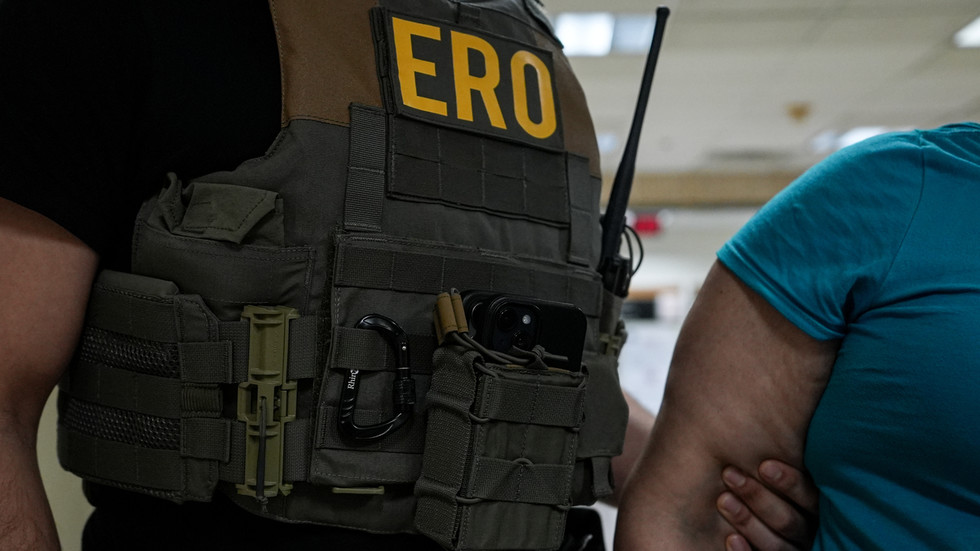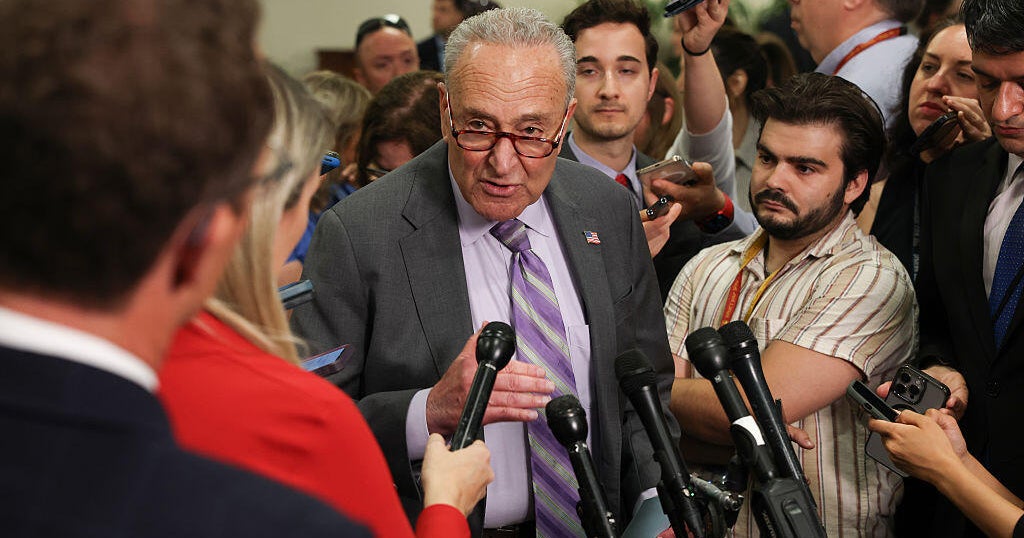As a child, Army Major Erica Vandal posed for family photos wearing her father’s oversized boots and helmet.
“I think it was very obvious from a young age that I wanted to follow in his footsteps,” she tells The Independent.
Her father, the late Lt. Gen. Thomas S. Vandal, served 36 years in the U.S. Army. A state-of-the-art simulation center at Camp Humphreys is named after him. She and her brothers followed their father’s path in the armed forces, with service in the Navy and Marine Corps.
Vandal, a field artillery officer with more than 14 years of service, calls it “family tradition.” She anticipates transferring her GI bill benefits to her children, ages 8 and 10, for their college education — all part of the “legacy of service” central to her identity.
But that was all stripped away on June 6.

Just days before Donald Trump threw a military parade on the streets of Washington, D.C. to celebrate the Army’s 250th birthday, Vandal had to decide whether she would accept “voluntary” separation from that same branch of the nation’s military because she is transgender.
“We belong and we deserve to be here,” Vandal says. “I represent 18 years and millions of dollars in training.”
Last month, the Department of Defense ordered military officials to “immediately” review medical records for trans service members to begin removing them from all branches of the armed forces.
The Pentagon’s order followed a Supreme Court decision that — for now — allows the Trump administration to ban trans people from the military and remove currently serving trans service members, despite court rulings that found the president’s directive plainly discriminatory.
Without imminent court intervention, Vandal anticipates her full separation from the military this December. She had hoped to serve at least 20 years with the Army, which would unlock lifetime pension and other benefits. If she’s removed, she will have left behind a more than 14-year career as an active-duty service member.
“Unlike a lot of jobs, being a soldier is kind of all encompassing,” Vandal says. “The amount of time and money that it would take to just replace me — not to mention the vast majority of transgender service members, who are senior [non-commissioned officers] and officers — it would be a detriment to readiness to remove all of us.”
She lives on base housing in upstate New York, and her family’s health insurance is provided solely through the military, with access to military hospitals and military treatment facilities. She is the family’s breadwinner.
Leaving behind a life of service she was born into is “devastating” to think about, the 36-year-old says, noting that nothing about the decision feels “voluntary.”
Vandal and other trans service members speaking with The Independent, note that they are speaking out on their personal behalf, not as military representatives.
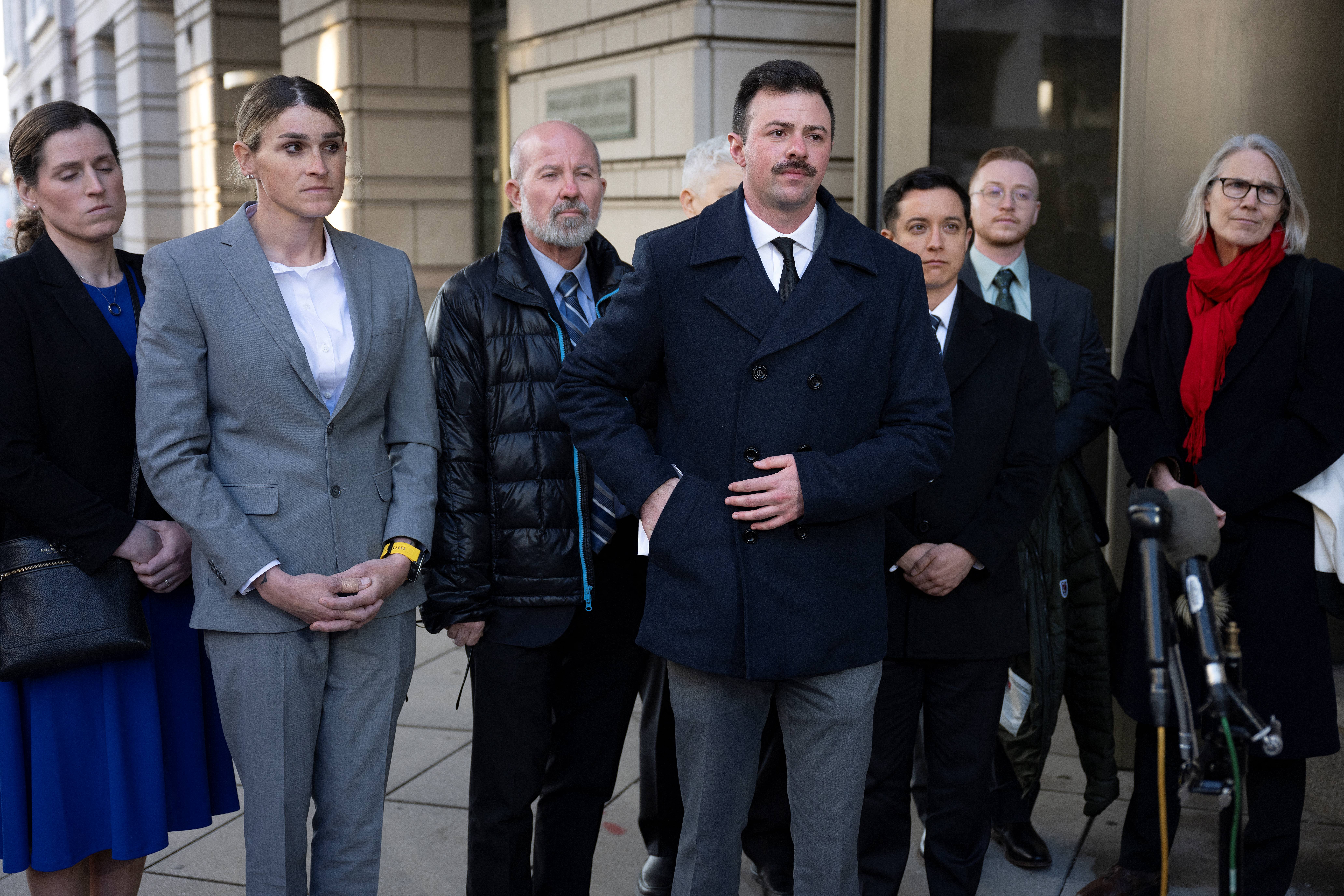
“There's a certain amount of bitterness in there, I think there’s certainly sadness associated with all of this, that this isn’t the way I wanted my career to end,” Vandal tells The Independent. “It’s going to be devastating with life-altering impacts, obviously for myself, and my family.”
Trump implemented a similar ban in his first administration, ostensibly on the spurious basis that the cost of gender-affirming healthcare would financially burden the armed forces.
This time, the president issued an executive order declaring that trans people lack a necessary “honorable, truthful, and disciplined lifestyle” to serve, and that being transgender is “not consistent with the humility and selflessness required of a service member” — despite the fact that roughly 4,000 trans people serve across all branches of the nation’s military and have for years.
SPARTA, a nonprofit advocacy group for trans troops directed by Navy Commander Emily Shilling, estimates as many as 25,000 trans people are serving. More than 1,000 people have already started the process for their removal from the military.
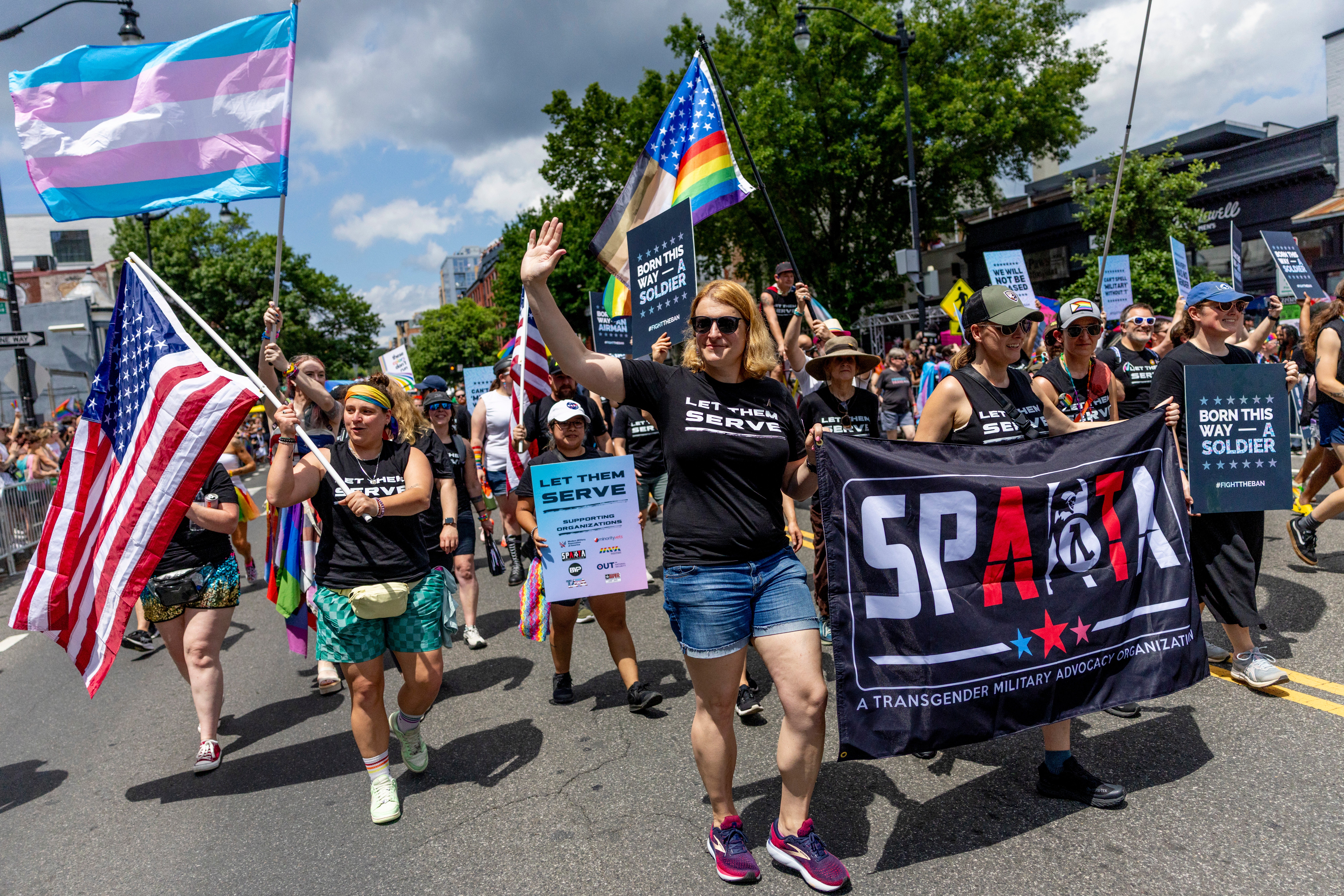
Vandal bounced between military bases as a child, attending the acclaimed United States Military Academy at West Point, just like her father.
She married her partner shortly after she was commissioned as a lieutenant and reported to Fort Sill in Oklahoma, the same base where her parents started their life in the military nearly 30 years earlier.
Vandal was later stationed in Hawaii and Colorado before being deployed to Afghanistan as a commander in 2018.
During a one-year assignment to South Korea in 2021, the same year then-President Joe Biden allowed trans troops to serve openly in the military, Vandal came out as trans and started her transition.
Following her promotion to the rank of major, she was deployed to Romania as part of a mission to deter Russian aggression in its invasion of Ukraine.
“I don’t understand this argument that the military is suffering ‘irreparable harm’ by letting us continue to stay when we represent all of these skill sets, all of this training,” she says. “Their ‘irreparable harm’ is not removing us as individual service members but to the military as a whole.”

Vandal is among more than two dozen service members and recruits who sued the administration to reverse Trump’s executive order. But U.S. Army Reserve second lieutenant Nicholas Talbott has been through this before.
Talbott was among the plaintiffs in a landmark 2017 case challenging Trump’s ban on trans troops during his first administration. He is now the lead plaintiff in one of three lawsuits calling on the courts to strike down the latest ban.
“I’m in a position where it is safe for me to put myself out there, and I’m very comfortable and confident in myself, and I’m able to stand up and speak out for myself and for others, and I feel very called to use my voice to do just that,” he tells The Independent.
Talbott, 31, discovered the word “transgender” when he was 12 and came out to his mother at 15. He started his transition at 18, and set his sights on a military career by 2015. Trump’s 2017 ban derailed those plans.
He now serves as a platoon leader in a military police unit with the Army Reserves. He had hoped to transition to active-duty service later this year.
But he has until July 7 to decide whether he intends to accept a “voluntary” separation from the military.
As the lead named plaintiff in Talbott v Trump, he has had a first-row seat to blistering courtroom hearings in which judges have interrogated government attorneys fumbling their defenses of the administration’s anti-trans decision-making — the surreality of watching a real-life television drama with his name on it only sinking in later.
There are late nights, financial anxiety, government deadlines that seemingly change by the day, and conversations with unit commanders who are trying to understand a policy they didn’t ask for.
Talbott fears separation codes in discharge paperwork could mark him and others as “national security threats,” a label with long shadows that could follow them into civilian employment.
The uncertainty is paralyzing.
“Right now, it’s very difficult for me to make any plans,” he admits.
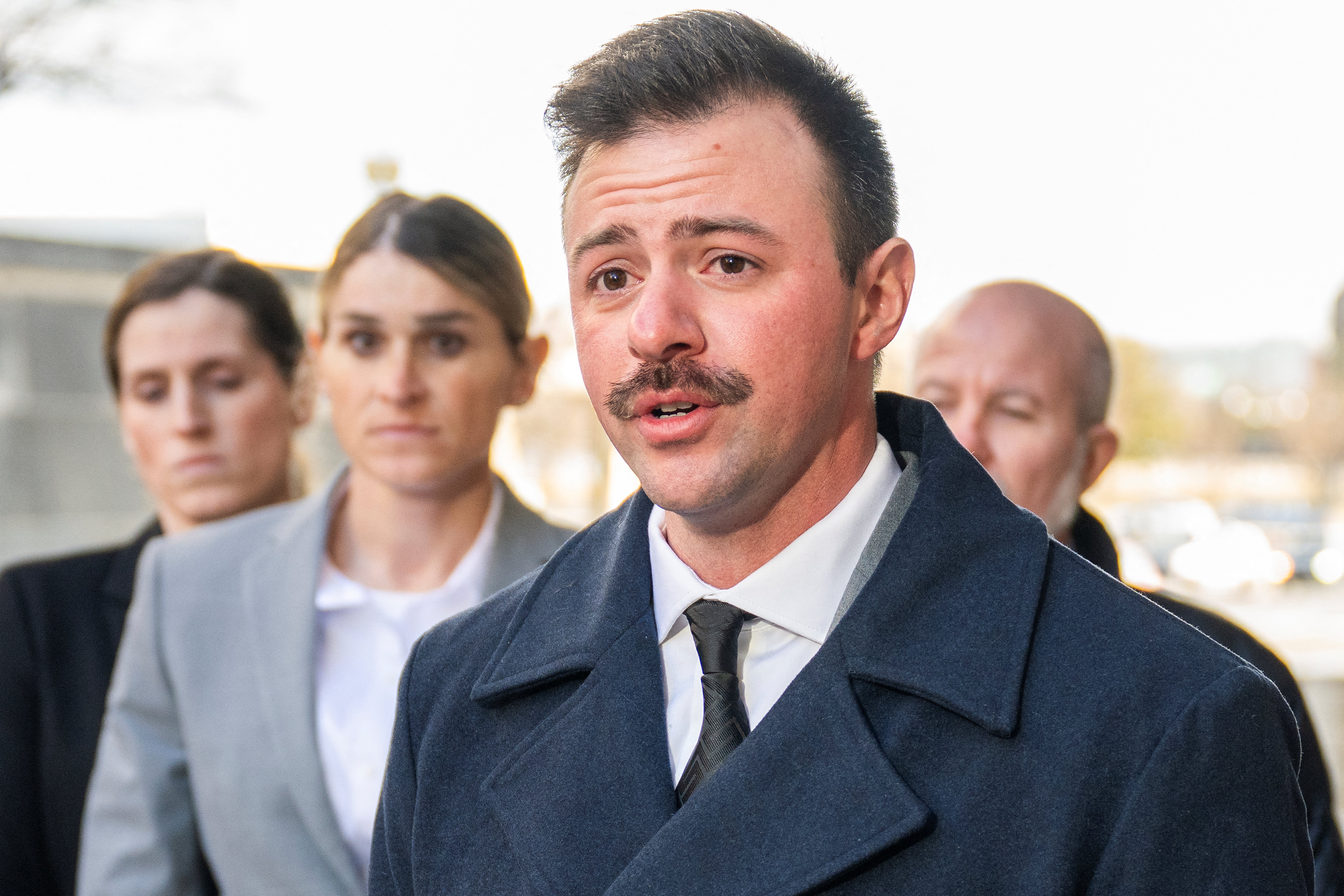
Government attorneys in Talbott’s case repeatedly tied themselves in knots over faulty data cited in government documents while trying to argue that not all trans people would be impacted by the administration’s ban. Meanwhile, Defense Secretary Pete Hegseth would routinely state the opposite. In February, Hegseth plainly stated “transgender troops are disqualified from service without an exemption.”
“I think it was obviously very, very difficult, and — if I’m being honest — personally, professionally offensive to hear my career, my service, or even my personhood, characterized in the manner in which it was characterized,” Vandal tells The Independent.
Any debate on the abilities of trans people in the military is “unambiguous,” she says.
“I’m hopeful that given time, we’ll course correct and be able to return to service,” Vandal continues. “At the end of the day, despite everything going on, I still love this country, I still love the Army. I’m still proud of my service that I’ve given, and I just am hopeful that it will live up to the ideals that it espouses to.”
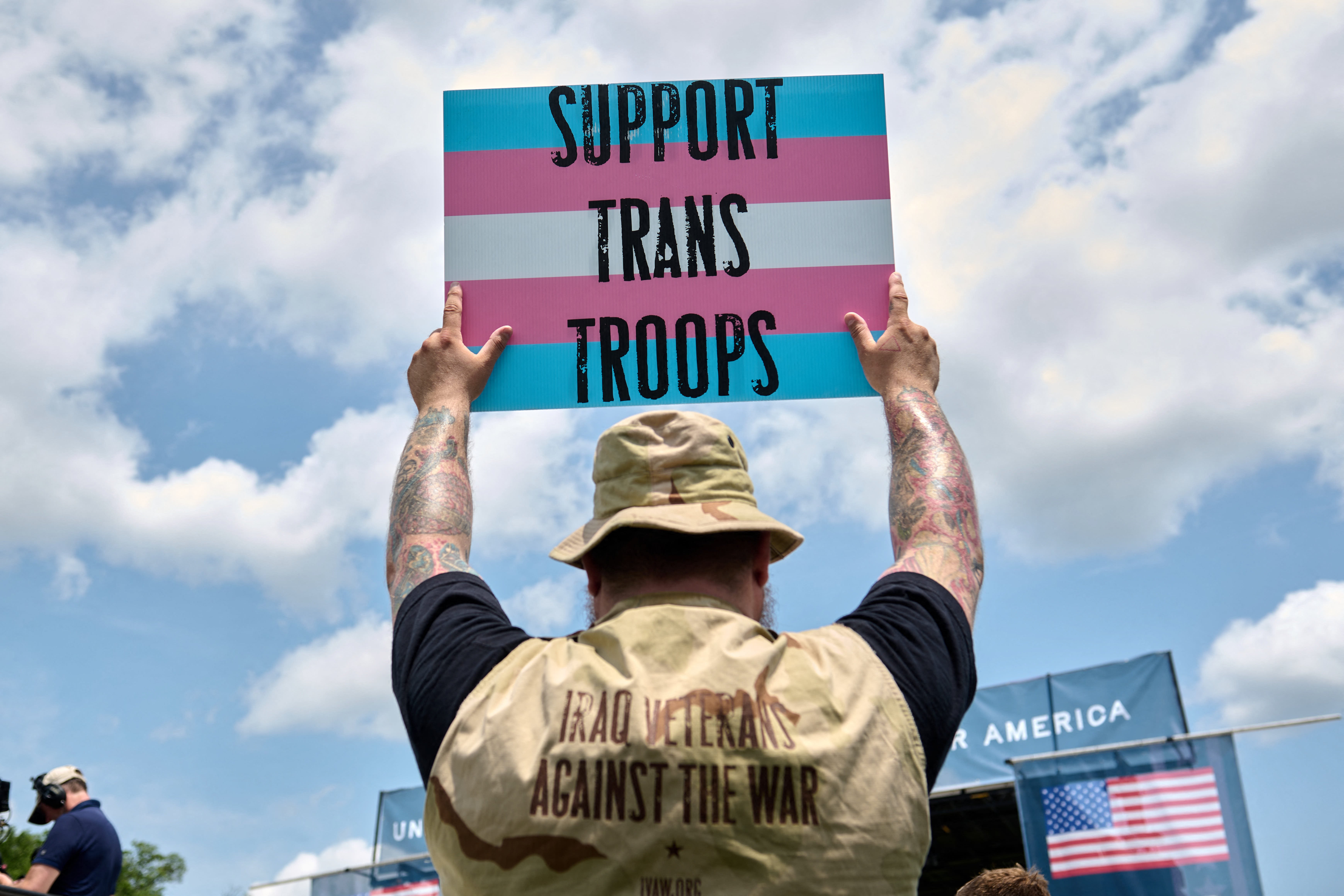
Tablott continues to show up for service with a quiet resolve while mulling the same life-altering questions facing Vandal and thousands of others.
“My primary focus is to just show up as a platoon leader and do my job,” Talbott says. “Every time I get to put on that uniform and go do Army things, I feel right at home.”
But that home is now under threat. Asked whether he feels a tension between serving a nation whose leadership does not recognize him and a dedication to service for all Americans, Talbott isn’t naive about global threats to trans people. His commitment to a life in the military speaks to something much greater.
“I try to tell everybody that at the end of the day, trans people are just people,” he says. “When I go home from work and I’m sitting on my couch with my dog, covered in dog hair, my thoughts are on car repairs. I bang my shins on the coffee table. I’m indecisive about what to make for dinner.”
Trans service members, like their colleagues, earned their place, he says.
“We passed all the same tests. We made it through all the same training,” he says. “And we are the only ones being singled out now, for no reason other than who we are.”

 5 hours ago
1
5 hours ago
1

